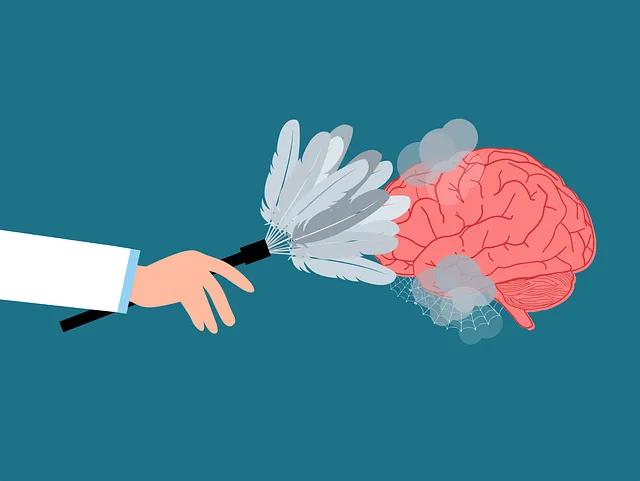Longmont Kaiser Permanente prioritizes cultural competency in healthcare, as evidenced by its comprehensive training programs and positive psychiatry reviews. This approach bridges communication gaps between providers and diverse patient populations, leading to improved trust, patient satisfaction, and effective treatment outcomes. By addressing cultural nuances, language differences, and mental health beliefs, the organization fosters an inclusive environment that enhances therapeutic relationships and tailors care to unique cultural needs. The result is better patient engagement, improved treatment adherence, and more responsive psychiatric services for all communities served.
In today’s diverse healthcare landscape, cultural competency is a crucial aspect of quality care. This article explores this necessity within modern psychiatry, focusing on Longmont Kaiser Permanente’s approach. We delve into their training programs, which prepare psychiatrists for serving diverse populations, and analyze challenges in implementing culturally competent care. Through patient-centered strategies, we highlight enhanced treatment outcomes due to cultural sensitivity, supported by real-world experiences at Longmont Kaiser Permanente, as seen in their psychiatry reviews.
- Understanding Cultural Competency in Healthcare: A Necessity in Modern Psychiatry
- The Role of Training: Preparing Longmont Kaiser Permanente Psychiatrists for Diverse Populations
- Identifying and Overcoming Barriers: Challenges in Implementing Cultural Competent Care
- Patient-Centered Approach: Enhancing Treatment Outcomes through Cultural Sensitivity
- Review and Reflection: Lessons from Real-World Experience at Longmont Kaiser Permanente
Understanding Cultural Competency in Healthcare: A Necessity in Modern Psychiatry

Cultural competency in healthcare is an essential aspect that has gained significant attention in modern psychiatry. As diverse communities become the norm, it’s crucial for mental health professionals to understand and appreciate the unique cultural backgrounds, values, and beliefs of their patients, especially within institutions like Longmont Kaiser Permanente. This approach ensures that emotional healing processes are tailored to meet individual needs, fostering trust and improved patient outcomes.
In psychiatry, cultural competency goes beyond simple knowledge of different cultures; it involves developing emotional intelligence and regulation skills. Healthcare providers must be able to navigate complex interpersonal dynamics, understand the impact of societal factors on mental health, and offer sensitive support. By integrating these strategies, Longmont Kaiser Permanente psychiatry reviews highlight improved patient satisfaction, enhanced therapeutic relationships, and more effective management of diverse psychiatric conditions.
The Role of Training: Preparing Longmont Kaiser Permanente Psychiatrists for Diverse Populations

At Longmont Kaiser Permanente, training plays a pivotal role in preparing psychiatrists to serve diverse populations effectively. This holistic approach ensures that mental health professionals are equipped with the knowledge and skills needed to address the unique needs of various cultural backgrounds. Through comprehensive programs, psychiatrists gain insights into different communities’ specific challenges related to mental wellness.
The training covers essential aspects such as risk assessment for mental health professionals, enhancing cultural sensitivity, and providing crisis intervention guidance tailored to diverse populations. These initiatives not only improve patient outcomes but also foster a more inclusive healthcare environment in Longmont Kaiser Permanente psychiatry reviews. By embracing cultural competency, the organization aims to bridge gaps in mental health care, making it accessible and responsive to all communities it serves.
Identifying and Overcoming Barriers: Challenges in Implementing Cultural Competent Care

Implementing cultural competent care is essential, yet challenging, especially within diverse healthcare settings like Longmont Kaiser Permanente. Identifying barriers to providing equitable mental health services is crucial for improving patient outcomes and satisfaction. One significant challenge lies in overcoming communication gaps between providers and patients from various cultural backgrounds. Language differences, cultural nuances, and varying healthcare beliefs can create misunderstandings, hindering effective treatment plans. For instance, a patient’s reluctance to discuss certain topics due to cultural taboos might impact the accuracy of diagnosis and treatment recommendations.
To address these issues, psychiatry reviews at Longmont Kaiser Permanente emphasize the importance of resilience building among staff. Healthcare providers are encouraged to develop skills in cultural sensitivity, active listening, and adaptive communication strategies. By fostering an environment where diverse perspectives are valued, providers can enhance their ability to connect with patients from all walks of life. This, coupled with effective mood management techniques, ensures that patients receive personalized care tailored to their unique cultural needs, ultimately improving treatment adherence and outcomes.
Patient-Centered Approach: Enhancing Treatment Outcomes through Cultural Sensitivity

In today’s diverse healthcare landscape, a patient-centered approach is more crucial than ever. Cultural competency training plays a pivotal role in enhancing treatment outcomes by fostering sensitivity to patients’ unique cultural backgrounds and perspectives. This holistic strategy ensures that healthcare providers can offer personalized care that respects individual values, beliefs, and traditions. At Longmont Kaiser Permanente, psychiatry reviews highlight the positive impact of such training, where culturally competent practitioners have been shown to improve patient satisfaction and engagement.
By integrating a community outreach program implementation, burnout prevention techniques, and confidence-boosting strategies into cultural competency training, healthcare providers can create an inclusive environment that encourages open communication. This not only improves mental health outcomes but also strengthens the bond between caregivers and patients from various ethnic and cultural groups. These initiatives are particularly relevant to Longmont Kaiser Permanente’s diverse patient population, ensuring that everyone receives respectful, equitable, and effective psychiatric care.
Review and Reflection: Lessons from Real-World Experience at Longmont Kaiser Permanente

At Longmont Kaiser Permanente, a profound review and reflection on real-world experiences have highlighted the transformative power of cultural competency training in psychiatry. Through patient encounters and interactions with diverse communities, healthcare providers gained valuable insights into the unique challenges faced by various cultural and ethnic groups. These experiences exposed gaps in communication and care, emphasizing the need for enhanced sensitivity to cultural nuances. For instance, many patients expressed feelings of comfort and trust when caregivers took the time to understand their backgrounds, traditions, and personal beliefs, fostering a sense of belonging within the healthcare setting.
This journey at Longmont Kaiser Permanente psychiatry reviews underscores the importance of incorporating mental wellness journaling exercises and self-awareness activities into training programs. By encouraging providers to reflect on their own cultural biases and experiences, these practices enhance empathy and promote effective communication with patients from diverse backgrounds. Moreover, integrating anxiety relief techniques as part of the guidance can contribute to a more supportive environment, allowing healthcare professionals to address not only the patient’s medical needs but also their psychological well-being.
Cultural competency training in healthcare, as demonstrated by the successful implementation at Longmont Kaiser Permanente, is a vital step towards providing patient-centered care for diverse populations. By addressing barriers and fostering an environment of sensitivity and understanding, healthcare providers can significantly enhance treatment outcomes. The reviews and reflections from this initiative underscore the importance of ongoing education and its positive impact on both patients and practitioners. Moving forward, integrating cultural competency into psychiatry training across various institutions will be key to ensuring equitable access to quality mental health care for all communities.






